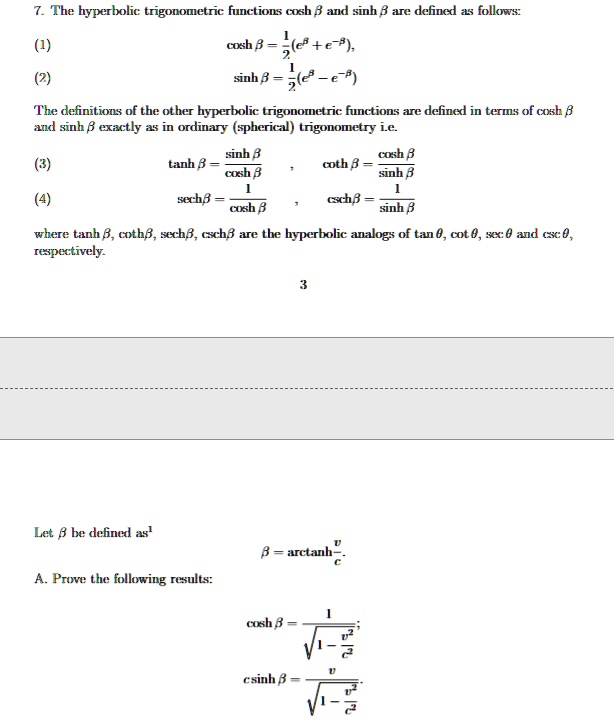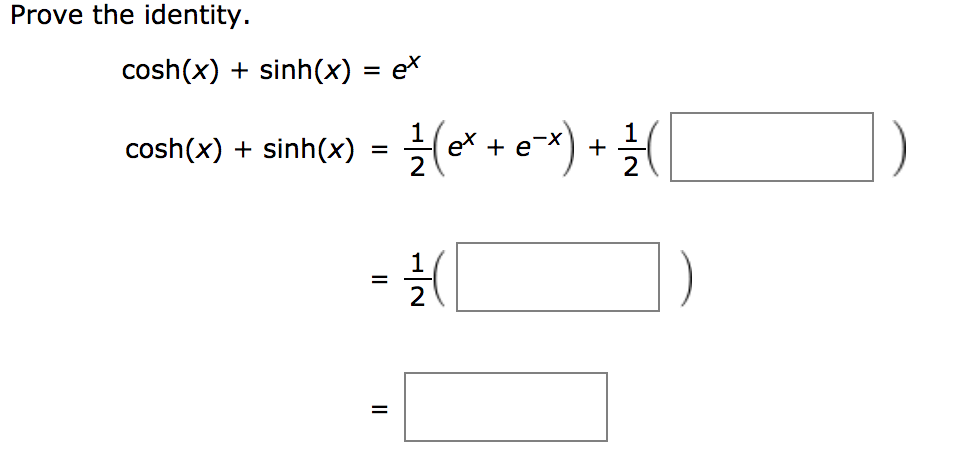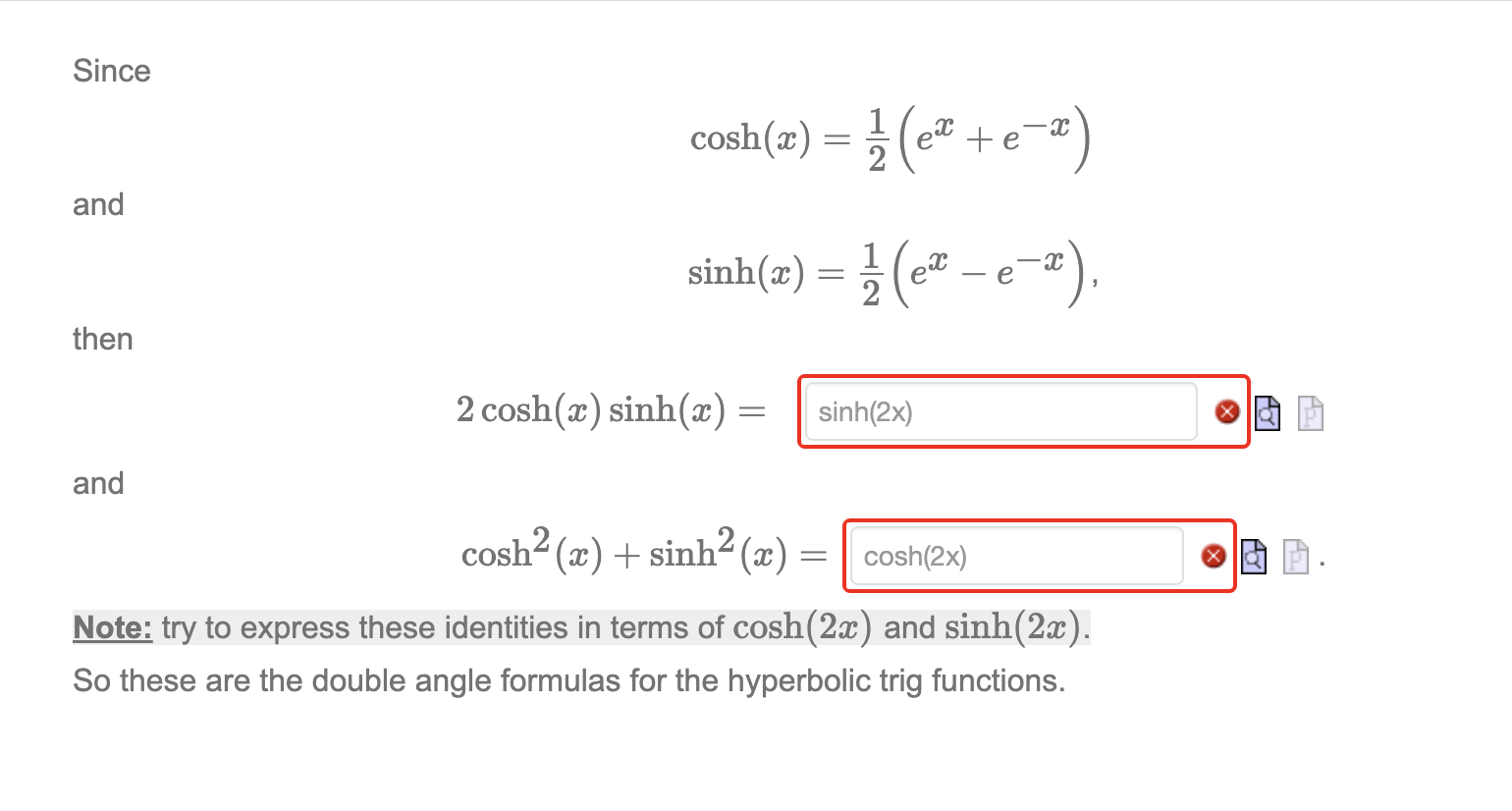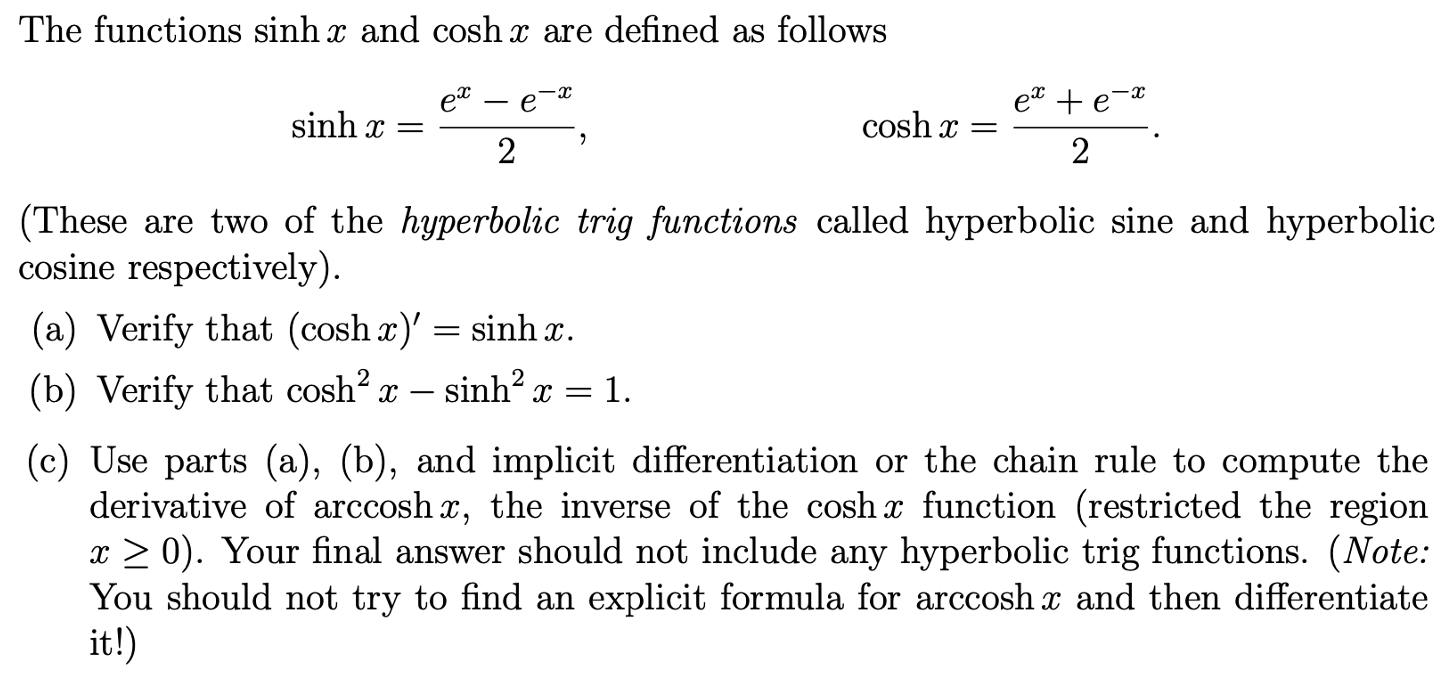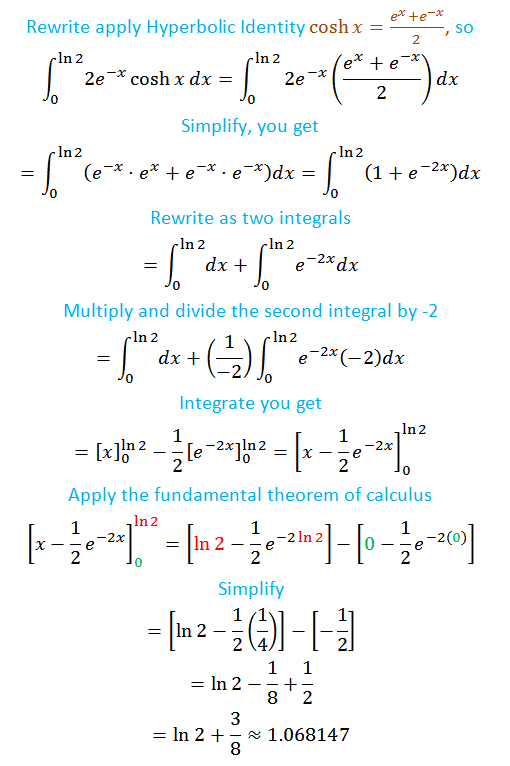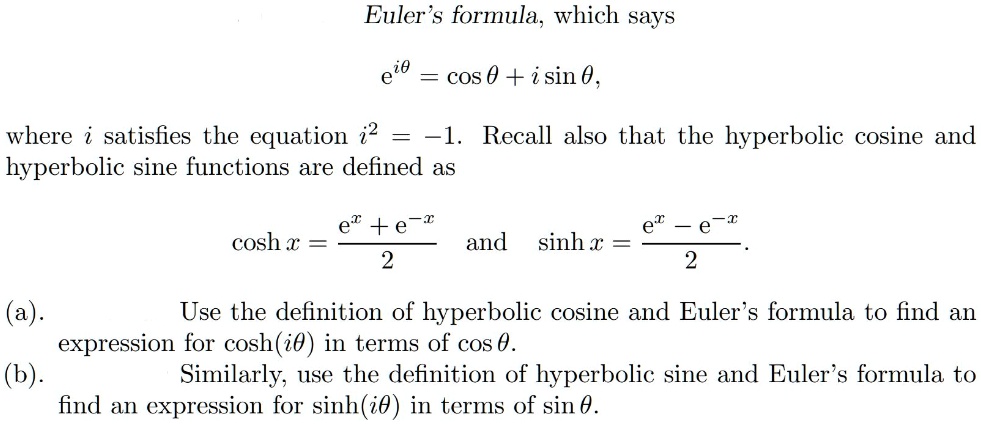
SOLVED: Euler'formula; which says cos 0 + i sin 0 where i satisfies the equation 12 -1. Recall also that the hyperbolic cosine and hyperbolic sine functions are defined as +e-r and

integration - Integral of $e^{-k \cosh(z)} \text {sech}(z) \ dz$ from $z=0$ to $z=\infty$ - Mathematics Stack Exchange
![An elementary course of infinitesimal calculus . = cosh X 1sinh a; .(2). We notice that cosh a;, like cos a;, is an even functionof X ] i.e. it is unaltered An elementary course of infinitesimal calculus . = cosh X 1sinh a; .(2). We notice that cosh a;, like cos a;, is an even functionof X ] i.e. it is unaltered](https://c8.alamy.com/comp/2CDC892/an-elementary-course-of-infinitesimal-calculus-=-cosh-x-1sinh-a-2-we-notice-that-cosh-a-like-cos-a-is-an-even-functionof-x-ie-it-is-unaltered-by-writing-x-for-a-whilst-sinh-xlike-sin-x-is-an-odd-function-ie-the-function-is-unalteredin-absolute-value-but-reversed-in-sign-by-the-same-substitu-tion-of-a-for-x-the-continuity-of-cosh-x-and-sinh-x-follows-from-thatof-e-and-e-bj-a-theorem-of-art-13-the-figure-on-thenext-page-shews-the-curves-ye-y-=-e-together-with-the-curves-y-=-cosh-x-y-=-sinh-x-which-are-derived-from-them-by-taking-half-the-sum-andhalf-th-2CDC892.jpg)
An elementary course of infinitesimal calculus . = cosh X 1sinh a; .(2). We notice that cosh a;, like cos a;, is an even functionof X ] i.e. it is unaltered

The hyperbolic sine of u is defined as \sinh u = \frac{1}{2} ( e ^u - e ^{-u}). The hyperbolic cosine of u is defined as \cosh u = \frac{1}{2} ( e ^

Cosh(x) function is the average of e x and e − x Hyperbolic functions... | Download Scientific Diagram
